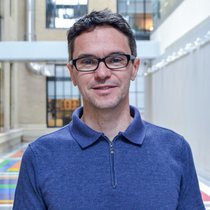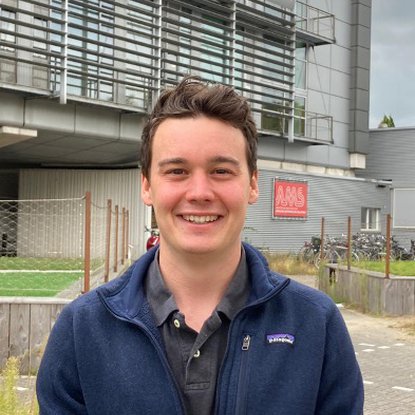The MIT Summer School on "Decarbonizing Cities and the Social Costs of Climate Change" brought together students and experts for an intensive five-day program to address the critical challenges of climate change mitigation and understand the social consequences of environmental degradation in Amsterdam.
Throughout the week, participants delved into an overarching theme: "Quantifying Social Costs through Mobile Sensing," exploring innovative ways to measure and mitigate the impacts of climate change in cities. The summer school tackled various topics, including decarbonization strategies, climate mitigation and adaptation, social equity considerations, collaborative governance, and technological innovations.
“The MIT Summer school at AMS encapsulates the core principles of the Senseable Amsterdam Lab: combining data-driven approaches, prospective design, and on-the-ground research to foster innovation in cities.”
Fábio Duarte
Research Scientist
An inspiring start
The summer school began with an inspiring keynote session with Juan Palacios and Eveline van Leeuwen, focused on ‘Framing the Challenges’. Their presentations shed light on the complexity of climate change’s social and economic implications, laying a solid foundation for the days ahead. These insights underscored the urgency of the issue and the importance of practical solutions. In the afternoon, the students visited the Urban Comfort Lab – AMS Institutes field lab made out of more than 120 containers aimed at researching how we can make neighborhoods near airports more livable.
Hands-on workshops
The program provided a hands-on experience that bridged theory and practice. On Tuesday, the day started with opening key-notes on environmental sensing by Marguerite Nyhan and Simone Mora. In the afternoon, the students participated in a workshop where they assembled ‘Flatburn’, a cutting-edge environmental sensor capable of real-time air quality data collection — a tool with great potential to collect critical data for climate research.
Real-world application
Wednesday was dedicated to developing real-world use cases for these sensors, exploring how mobile sensing can be applied to address climate-related challenges. This practical approach exemplified the role of technology in effecting meaningful change. In the afternoon, students headed out into Amsterdam to pilot their developed use cases and collect data using the Flatburn device, creating a tangible link between theory and action.
Flatburn in a real-world setting
Data analysis and conclusions
Thursday emphasized the logistics of implementing sensing technologies and the importance of robust data analysis to derive meaningful conclusions. Finally, on Friday students presented their use cases and findings. Their pitches, enriched with data vizualisation and science storytelling, received an enthousiastic reception. The diverse topics included ‘My own bubble’, ‘Can commuting become healthier?’, ‘Children and pollution exposure’, ‘A story of Harry and the air he breathes’, and ‘NoiCe: identifying noise around you’. The MIT Summer School not only equipped participants with valuable knowledge and skills but also instilled a sense of urgency and responsibility in the fight against climate change.
Collaborative efforts
The MIT Summerschool was held in collaboration with MIT Center for Real Estate. The summer school took place at AMS Institute, where the Senseable Amsterdam Laboratory (SAL), a research initiative between AMS Institute and MIT, utilizes novel data and science-based methods and tools to help Amsterdam transition into a carbon-neutral city. The initiative leverages sensors embedded throughout the city to generate data at unprecedented scales, offering unique opportunities to understand and design cities in novel ways.
Closing remarks
The MIT Summer School on "Decarbonizing Cities and the Social Costs of Climate Change" left a lasting impact on participants and underscored the vital role of collaboration, innovation, and hands-on learning in addressing climate change challenges. As we move forward, the knowledge, skills, and inspiration gained from this event will play a pivotal role in shaping a more sustainable future.

